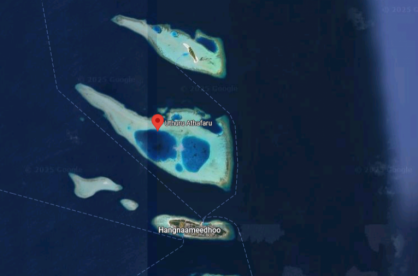Lessons of experience from external shocks
Environment vulnerability and rising public debt are two important issues challenging development prospects for the Maldives.

Source: Flckr@firax
Environment vulnerability and rising public debt are two important issues challenging development prospects for the Maldives.

Source: Flckr@firax
The impact of economic shocks to Maldives economy has been dramatically demonstrated in the last 40 years or so. Firstly, recessions almost always come as a surprise with no prior warning. Secondly, the cause of these shocks has almost always been the result of one or more of the following: increase in world commodity prices, global conflicts, environmental disasters, global pandemics and shock caused by disruptive macroeconomic policies and weaknesses in the financial system.
Third, they have had devastating consequences to world economies and in particular developing countries and the smaller economies. Fourth, they further exacerbated the economic difficulties facing many developing countries. Fifth, some global shocks lead to short term economic disturbances and are self-correcting, while other global problems are of longer-term nature, and may require a more strategic long-term approach to finding solutions.
The lessons of experience highlight two important issues challenging development prospects for the Maldives. Maldives shares many of the development challenges faced by many other Small Island Developing States (SIDS). These include its unique geographical and fragile environment characteristics (notably, more than 80 percent of the land area of the country is less than one meter above the mean high tide level), the small population and small internal markets that result in diseconomies of scale and high fixed costs of production.
The country’s key economic drivers, Tourism and Fisheries are heavily reliant on the country’s fragile natural assets for sustaining economic growth and ensuring livelihood - making the economy highly vulnerable to climate change and extreme weather events and highly sensitive to the increasing environmental shocks.
The next major challenge being, the sharply rising public debt caused by sustained fiscal deficits (now at 153 percent of GDP) which has added substantial risks to these vulnerabilities - including further deterioration in the overall financial condition threatening long-term growth and socio-economic development of the country.
Maldives was one of the world’s 20 poorest countries in the early 1980s and is currently enjoying the same levels of development outcomes as a middle-income country. This makes the country a good example of the ‘small island’ paradox: suggesting that as much as it appears relatively prosperous, it is extremely vulnerable to economic shocks. In going forward, far-reaching challenges remain.



